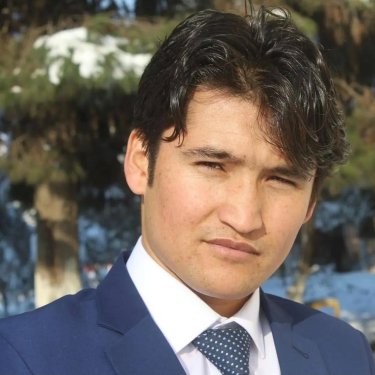Two journalists detained in latest crackdown in Afghanistan

Reporters Without Borders (RSF) calls for the release of two journalists who were arrested within a week of each other in Afghanistan – one while out reporting and the other after being tried and sentenced behind closed doors. The Taliban authorities must stop hounding independent media, RSF says.
“Press freedom has collapsed since the Taliban retook power in 2021, with journalists being subjected to arbitrary arrest and a crackdown on independent media. We call on the Taliban authorities to release Radio Nasim director Sultan Ali Javadi and Tamadon TV reporter Abdul Rahim Mohammadi immediately and to end their intimidation campaign against media professionals in Afghanistan.
Update of 15/02/2024 : Abdul Rahim Mohammadi was freed around February 15 by Talibans in Kandahar.
Update of 06/04/2024 : Sultan Ali Javadi was freed on 6 avril after spending 134 days in prison.
Neither the GDI nor the local authorities have provided any information about the reason for Mohammadi’s arrest while working in the southern province of Kandahar on 4 December. According to RSF’s information, he was arrested at a Taliban checkpoint for failing to present an identity document and was then placed in detention. Tamadon TV is an independent media outlet that mainly targets Afghanistan’s Shia minority.
Javadi, whose now-closed news and entertainment radio station was based in Nili, the capital of the central province of Daykundi, was sentenced to a year in prison on charges of “propaganda against the Islamic Emirate of Afghanistan” and “spying for foreign and infidel countries” at the end of a trial before a local court that was held behind closed doors and without a lawyer present. He was detained the next day.
Radio silence
Radio Nasim had been persecuted for three months, ever since 27 September, when the Daikundi GDI briefly arrested Javadi and two of his colleagues, Saifullah Rezaei and Mojtaba Qasemi, seized their equipment, and sealed the entrance to the radio station, which has not broadcast since then.
According to RSF’s sources, they were accused of broadcasting content from Radio Azadi, the Afghan branch of the US broadcaster Radio Free Europe (RFE)/Radio Liberty(RL), which was banned from broadcasting in Afghanistan in December 2022.
The three journalists were arrested again at their homes on 7 October for allegedly cooperating with foreign media critical of the Taliban. Rezaei and Qasemi were released after 11 days, while Javadi was not released until 24 October.
Reign of fear
The current crackdown on the media was preceded by the arrests of nine journalists in five provinces in the space of a week in the first half of August. Of the five privately-owned media outlets operating in Daykundi province before the Taliban takeover, three were ransacked after the previous government fell, and the GDI seized the equipment of the others. Radio Nasim’s closure leaves Seday-e-Qarya as the only radio station still operating.
On 19 December, TOLO news journalist Ruhollah Sangar was released after being held by the GDI for two days in Parwan province, north of Kabul. He was arrested on 17 December by members of the Taliban's General Directorate of Intelligence while working in the town of Charikar, the capital of Parwan province. The local authorities and the Parwan GDI gave no official reason for his arrest.
Afghanistan is ranked 152nd out of 180 countries in RSF's 2023 World Press Freedom Index. Three journalists have been killed in Afghanistan since the start of the year and two are currently detained.
